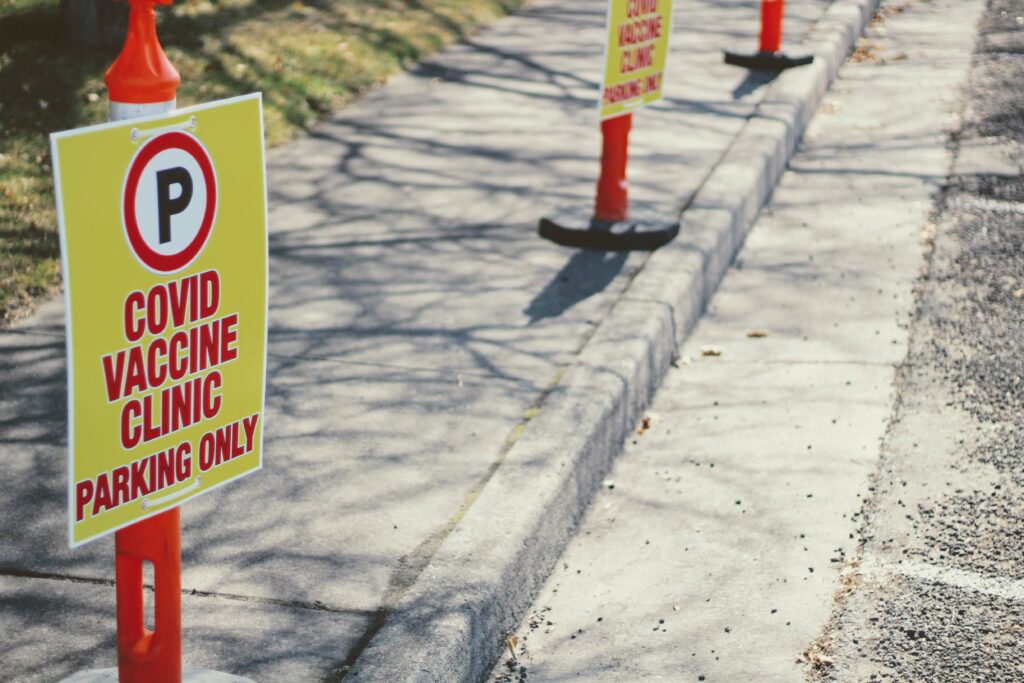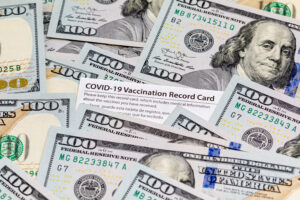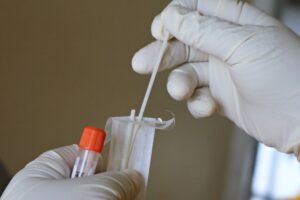Mental health challenges brought about by unprecedented anxiety and depression from COVID-19 has been dubbed the “second pandemic.” As COVID-19 extends into its third year, the potential costs of a parallel mental health crisis have alarmed policymakers.
COVID-19 vaccines may offer individuals more than protection from serious illness caused by the virus— they may also reduce COVID-related anxiety and depression. After vaccines were rolled out to the general public, positive stories began to circulate of friends reuniting, social gatherings resuming, and many pre-pandemic aspects of life returning – conveying that some pandemic-related anxiety and depression was going away as things reopened.
In a new National Bureau of Economic Research working paper, researchers evaluated whether or not vaccines quantifiably reduce mental health costs.
Sign up for Schaeffer Center news
The analysis estimates that becoming vaccinated led to an approximate 30% reduction in mental health symptoms like anxiety and depression.
The researchers used a nationwide cross-sectional survey of 2.5 million American households that was conducted by the U.S. Census Bureau between April 2020 at the onset of the lockdowns, and through May 2021 when vaccine distribution had reached the general population.
While the majority of Americans surveyed had still not been fully vaccinated by May of 2021, those that had at least one dose of the vaccine were reporting decreased symptoms of depression and anxiety with the threat of getting COVID-19 now reduced.
For workers in roles deemed essential, which are disproportionately low-income populations, the drop in mental health symptoms was even larger. This is a group that had faced daily exposure to the virus due to working conditions before vaccines were distributed and accounted for a disproportionate percentage of excess deaths. The larger benefits also extended to households with children, households that rent instead of own, and households with people who work in the private sector.
The mental health benefits of vaccination appear to only impact those who actually received the vaccine. The concept of a “spill-over” effect of vaccines in reducing the symptoms of anxiety and depression for unvaccinated individuals did not occur, which means increases in community vaccination rates only benefit the vaccinated. .
It’s important to note that this survey did not include trauma or suicidal ideation. It also did not include age group under 18, a population that is often the focus on the mental health crisis due to remote learning. Lastly, the survey concluded before the Delta and Omicron variants surged across the U.S.
Assessing the added value of vaccine distribution
Pandemic-related depression and anxiety is estimated to have increased mental health costs by $1.6 trillion through May of 2021.
In medical terms, the vaccine rollout is believed to have avoided 140,000 additional deaths through May of 2021, or roughly $625 billion to $1.4 trillion in economic benefit.
Using a similar approach when analyzing the vaccines impact on pandemic-related mental health symptoms, we find that a 30% reduction in anxiety and depression symptoms from being vaccinated, with over 70% of U.S. adults receiving at least one dose, would result in an economic benefit of roughly $346 billion.
While reducing hospitalization and death is central to vaccine benefits, our findings show that a clear secondary benefit of reducing mental health symptoms is also essential to this discussion.
Policymakers should weigh mental health considerations when deciding on how much to invest in vaccine distribution strategies and implementing certain policies like vaccine mandates. This extends to COVID-19 as well as other current and future viruses.
In addition to Agrawal, Neeraj Sood, Jonathan H. Cantor, and Christopher M. Whaley contributed to this research. This is a working paper that has not gone through the peer review process.
The Economist published a story on this study on Jan 20, 2022.
Related Work
-
Press Release
Traditional Vaccination Playbook Doesn’t Work with COVID
-
Perspective
The High Cost of ‘Free’ Covid Testing



